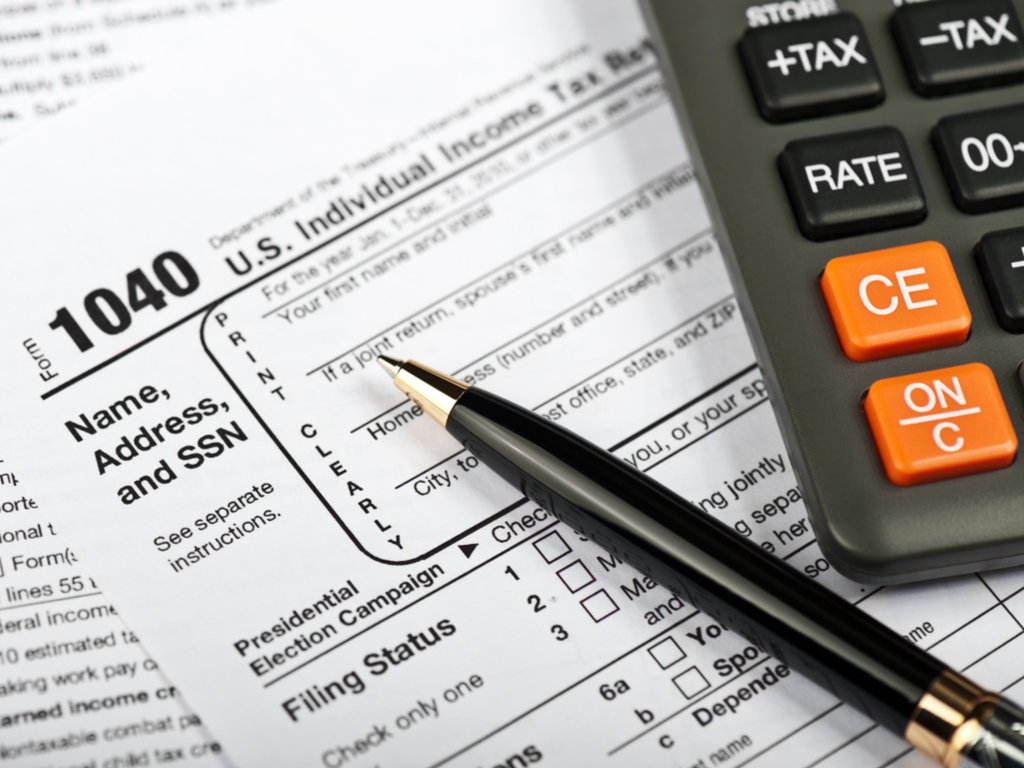 It is tax time. Millions of Americans will be receiving a tax refund. A tax refund is a nice annual influx of cash. How are you planning on spending your tax refund? Will the money be used to buy a new big screen TV, take a family vacation, a down payment on a new car or use it to pay down credit card debt? It always seems like everyone has a plan to spend their refund. I guess that is good news for our economy but may not be the best news for us personally.
It is tax time. Millions of Americans will be receiving a tax refund. A tax refund is a nice annual influx of cash. How are you planning on spending your tax refund? Will the money be used to buy a new big screen TV, take a family vacation, a down payment on a new car or use it to pay down credit card debt? It always seems like everyone has a plan to spend their refund. I guess that is good news for our economy but may not be the best news for us personally.
Maybe we should use this opportunity to stop and take a look at our personal finances and our spending habits, and determine the best use for this money. Would you be willing to spend the money vs. invest the money if it would help move you closer to achieving your financial goals?
Here is a quick example on the difference and impact of spending your refund vs. investing your refund over the last two years. Let’s presume for this example you received a refund of $3,000 on March, 2009 and you used the money to purchase a new big screen TV and surround sound system for your home. Great entertainment value, but what is the resale value of the big screen TV and surround sound system today? What if you made the decision to invest the same $3,000 in the stock market in March, 2009 in an established publically traded company like Caterpillar, American Express, Wells Fargo etc. What would the $3,000 investment be worth today?
Stock 3/2/09 4/4/11 Current Value $3,000 investment
Caterpillar (CAT) $23.23 $113.38 $14,626
American Express (AXP) $10.26 $45.42 $13,262
Wells Fargo (WFC) $8 .61 $42.37 $14,744
*I am not a financial advisor or a stock broker. These stock quotes are for illustration purposes only.
The returns of these 3 stocks were not the highest returns during this period of time. There were similar returns on a variety other stocks and some stocks like Ford (F) and others that had larger gains. This is merely an example to illustrate the difference between choosing to conserve our cash vs. consume our cash. Obviously, these returns are not typical 24 month returns for established publically traded companies. These returns were the result of a perfect storm that was created by the financial crisis that adversely impacted the value of many companies. However, these investment opportunities were available to anyone following the stock market.
The more important lesson for all of us to learn from this example is that we need to ask ourselves is “how do we handle our hard earned money?” How much have we saved and invested vs. how much have we consumed and spent supporting our lifestyle choices? Ultimately our lifestyle and financial choices will impact our ability to reach our financial goals and our ability to retire. What will someday look like for each of us?
The good news it is never too late to work on improving your financial habits and take control of your personal finances. I hope you will use this year’s tax refund as an opportunity to stop and reflect on your financial habits and goals. April is the perfect month to work on improving your finances because it is National Financial Literacy Month and there are numerous free resources offered all across America.
In closing, you may also want to take a look at your payroll withholding deductions to determine if it would be better to increase your monthly take home pay as opposed to waiting all year to receive a refund by changing your payroll deductions. The IRS provides a W-4 calculator to help you determine the correct amount of money to withhold from each paycheck. Here is a link to their site: http://1.usa.gov/8VASOp
You can also speak with a CPA or tax preparation service and have them run some calculations for you to help minimize your estimated tax refund. By increasing your net monthly take home pay, you will have more money on a monthly basis to cover your living expenses, pay off debt, increase your 401k / retirement contributions, fund an emergency fund, etc.
Do you know someone that might benefit from this article? If so, please forward this article to them.
I hope you will follow Fiscal Literacy on Twitter, Facebook or sign up for our free personal finance, news & updates.
Copyright © 2011 FiscalLiteracy.com, All Rights Reserved
Please take the time to click on Twitter or Facebook link and share this article or leave a comment. Thank You!












